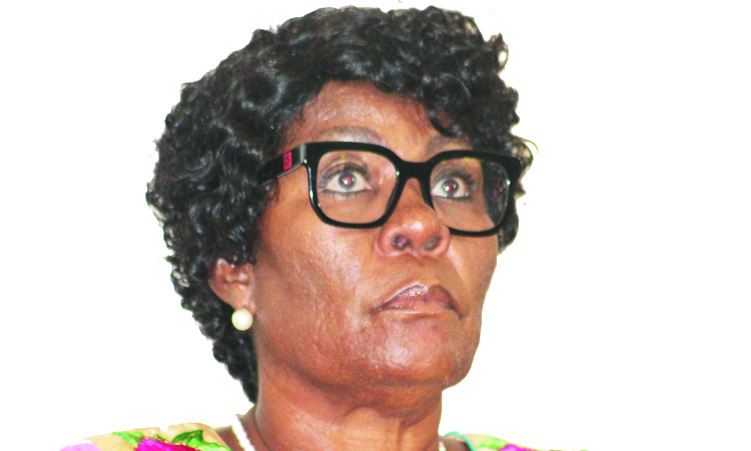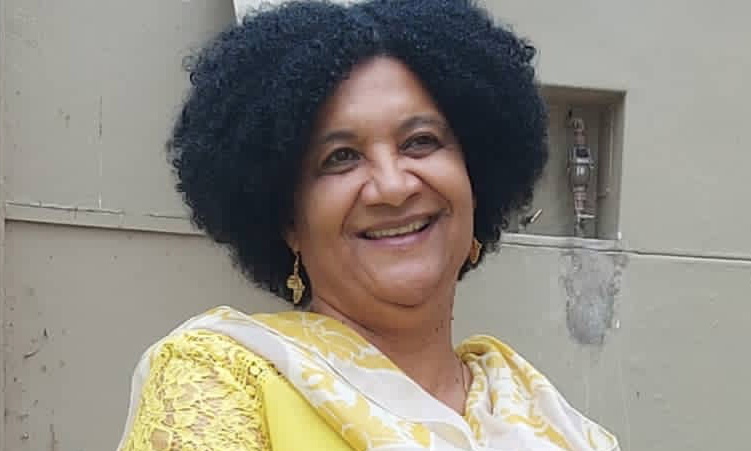Over the last four years, 79% of pupils who wrote the Grade 11 national examinations have not qualified to proceed to top tertiary institutions or Grade 12.
This represents 120 468 out of 152 686 pupils who sat for the exams.
However, the number of pupils who qualify has doubled from 5 007 in 2020 to 10 261 candidates last year.
The Ministry of Education, Arts and Culture’s director of national examinations and assessment, Clementine Garises, celebrates this progress.
“When we started in 2020, 18,5% qualified. The syllabus was new. It is a revised syllabus where Grade 12 content has basically moved to Grade 11.
“That’s why the value of ordinary level remains the same. In the second year of implementation, it moved to 18,8% – a slight improvement.
“That was the time we had Covid. After that third year, it was 21,4%. And now we are at 25,2%. Is that not progress?” she says.
Garises says the implementation of the new curriculum has, however, not been easy.

“Covid has caused a backlog for our children who were already in the system. Until 2020’s Grade 1s have been phased out of the system, we will still struggle with those issues,” she says.
The 2020 examination results saw 27 008 pupils sit and 22 001 not qualifying.
This represents 81,5%, while 5 007 (18,5%) qualified.
The following year, 38 160 pupils did not qualify, which represents 81,2% of the 46 977 who wrote the examinations.
Defending these figures, Garises mentions the new curriculum.
She says she is confident this percentage would increase to 50% in five years’ time.
Minister of education, arts and culture Anna Nghipondoka last week said 11 970 Namibia Senior Secondary Certificate Ordinary (NSSCO) level full-time candidates obtained 25 points and above in five subjects, which is an increase from the previous year’s 5 812.
“This is an improvement of 14,1%,” she said.

OTHER OPTIONS
Garises says the school system is designed to accommodate the different strengths of pupils in the education system by giving them the option to leave the secondary schooling system after Grade 11.
Nghipondoka last week said candidates who have accumulated improved grades over the past few years also qualify for various courses at different institutions of higher learning.
Pupils below the age of 18 can go back into the formal schooling system and redo their subjects to improve their marks.
The candidates who did not qualify for either tertiary education or Grade 12 can also opt to join the Namibian College for Open Learning (Namcol) or The University Centre for Studies in Namibia (Tucsin).
Garises says technical and vocational education and training (TVET) under the National Training Authority is another option.
‘DON’T CLAP HANDS’
Academic commentators have denounced celebrating the 3,8% improvement in the passing rate of Grade 11 pupils, suggesting it is not worthy of any celebration.
Speaking to Desert Radio recently, Theresia Mushaandja, an acting departmental head at the Namibia University of Science and Technology (Nust), said the fact that 75% of pupils failed to proceed with further education is lamentable.
“My worry goes to the 75% and their future,” she said.
“It should be appreciated, but not something that we should clap hands about.”
Education graduate Augustus Shipoke last week said teachers are blamed, but the curriculum itself hinders pupils’ progress.
“They will be forced to improve subjects in which they scored D symbols or low with 26 points in five subjects and 30 points in six subjects for example, which I believe is unfair,” he said.

‘DEEPER ISSUES’
Popular Democratic Movement member Inna Hengari says while the increase in the pass rate may seem like progress, this should be seen in the context of increased spending and purported pass rate adjustments.
“The minimal increase fails to reflect the substantial investments made in the education sector, suggesting there may be deeper systemic issues hindering the transformative impact of these financial allocations,” she says.
“The PDM celebrates the outstanding achievements of candidates who dared to pursue excellence in TVET subjects.
Building studies, fashion and fabrics, design and technology, and metal work are not mere subjects, they are the bedrock upon which the future industries of our country will stand,” Hengari said in a statement issued on Sunday.
Landless People’s Movement (LPM) parliamentarian Utaara Mootu describes the exams outcome as displeasing.
“We are not oblivious to the fact that Covid-19 affected the education system, but we should move on from that,” she told Desert Radio.
DON’T SIGN
Teachers’ Union of Namibia (TUN) says teachers should not sign performance agreements until certain provisions on the part of the education ministry are met.
“For you to perform, the employer must provide the necessary tools,” says TUN secretary general Mahongora Kavihuha.
Nghipondoka last week encouraged teachers to develop performance goals outlined in formalised agreements.
“I hereby instruct that school principals, education officers and inspectors of education should analyse the results thoroughly and identify schools, subjects and teachers teaching subjects that are poorly performed in, and have performance dialogues, followed by signed agreements with clearly stipulated subject targets to be met,” she said.
Stay informed with The Namibian – your source for credible journalism. Get in-depth reporting and opinions for
only N$85 a month. Invest in journalism, invest in democracy –
Subscribe Now!







